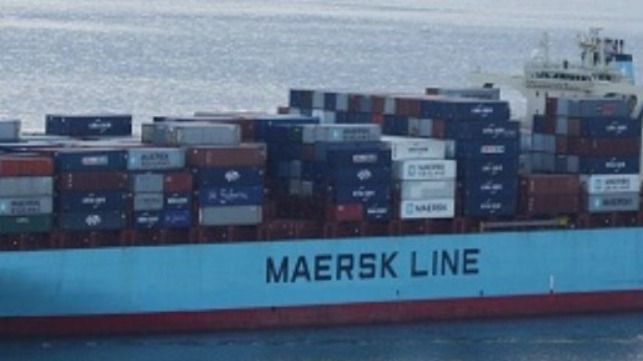Maersk Files Suit to Recover $6 Million in Damages From Off-Spec Fuel

Container shipping giant Maersk has filed suit alleging that fuel supplied to it as part of an oil swap deal was contaminated and caused damages to two of its containerships. The suit filed in the Southern District of New York seeks to hold commodities trader Glencore liable for supplying the off-spec fuel to the company’s vessels.
According to papers filed with the court, Maersk completed a fuel swap with Glencore for 24,000 barrels of marine fuel to be supplied to the company in Panama in February 2018. The fuel was loaded aboard the Maersk Aras and two days after she began using the fuel the vessel suffered engine failure forcing it to divert to Mexico to load replacement fuel before it could continue to sail.
Two weeks after the first failure, another Maersk containership, the Sofie Maersk experienced first a fuel pump failure and then days later main engine failure while also using fuel from the same shipment. The Sofie Maersk, which was transiting the Pacific, had to be towed to Hawaii for repairs and to load new fuel.
A subsequent analysis of the fuel showed that it was off-spec and seriously contaminated. The court documents report that the tests showed the fuel contained traces of plastic, fibers, black gum, paraffins, and fatty acids.
Maersk is seeking more than $6 million in damages from Glencore for the contaminated fuel. They contend in the filing that there was no agreement between the two companies that would have released Glencore from liabilities for the off-spec fuel. Glencore previously sought a court action in 2019 attempting to block Maersk’s rights to file a claim for damages from the incident.

that matters most
Get the latest maritime news delivered to your inbox daily.
The issue of off-spec fuel has long plagued the shipping industry with a rash of high-profile incidents in 2018 that also lead to legal claims.
The problem of off-spec fuel again came to light in 2020 with the adoption of new low-sulfur fuels. A survey conducted by BIMCO reported that 86 percent of shipowners were experiencing serious problems with new very low sulfur fuel formulations. The problems cited ranged from increased engine wear and pump failures to loss of propulsion and blackouts. One in five reported that their vessels had to debunker due to problems with the fuel received.
